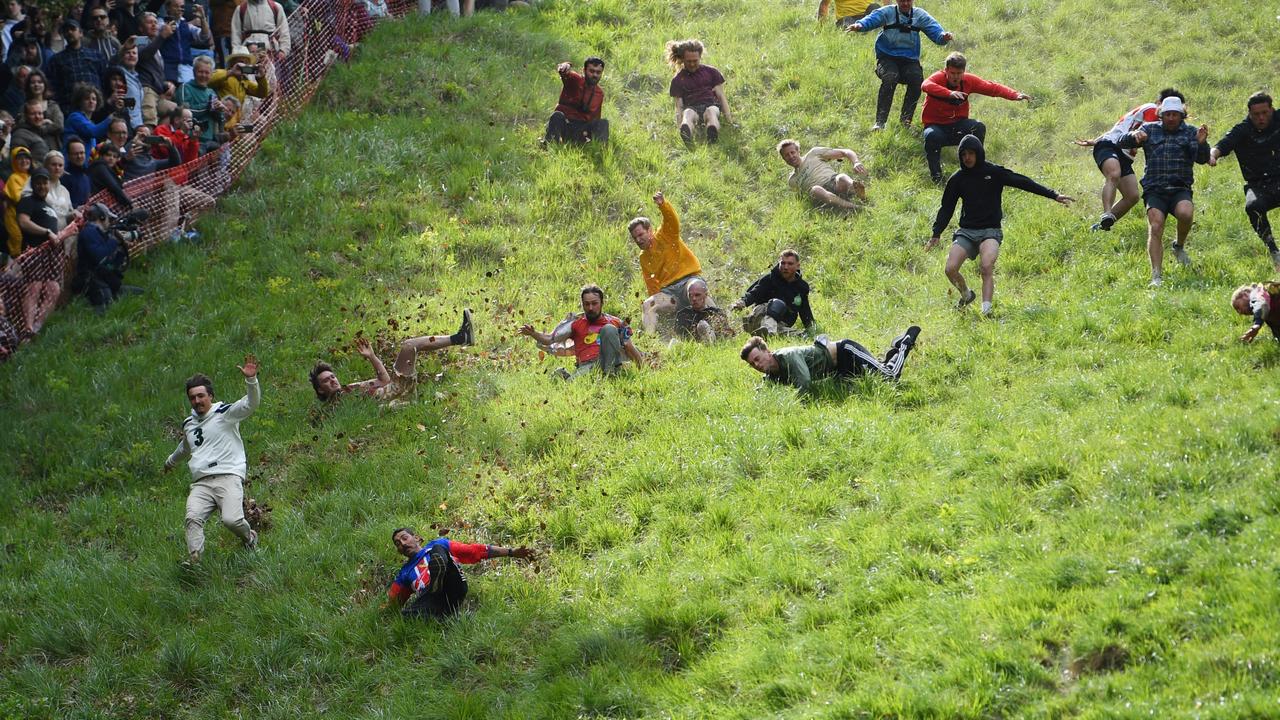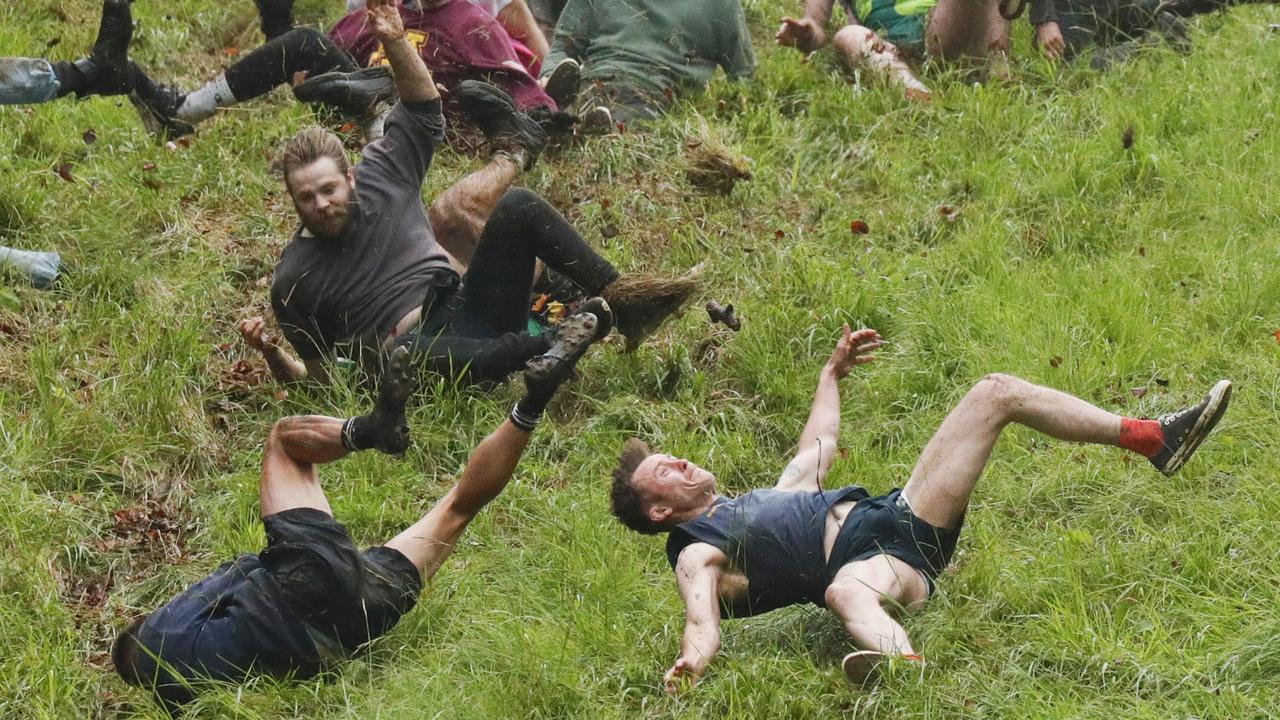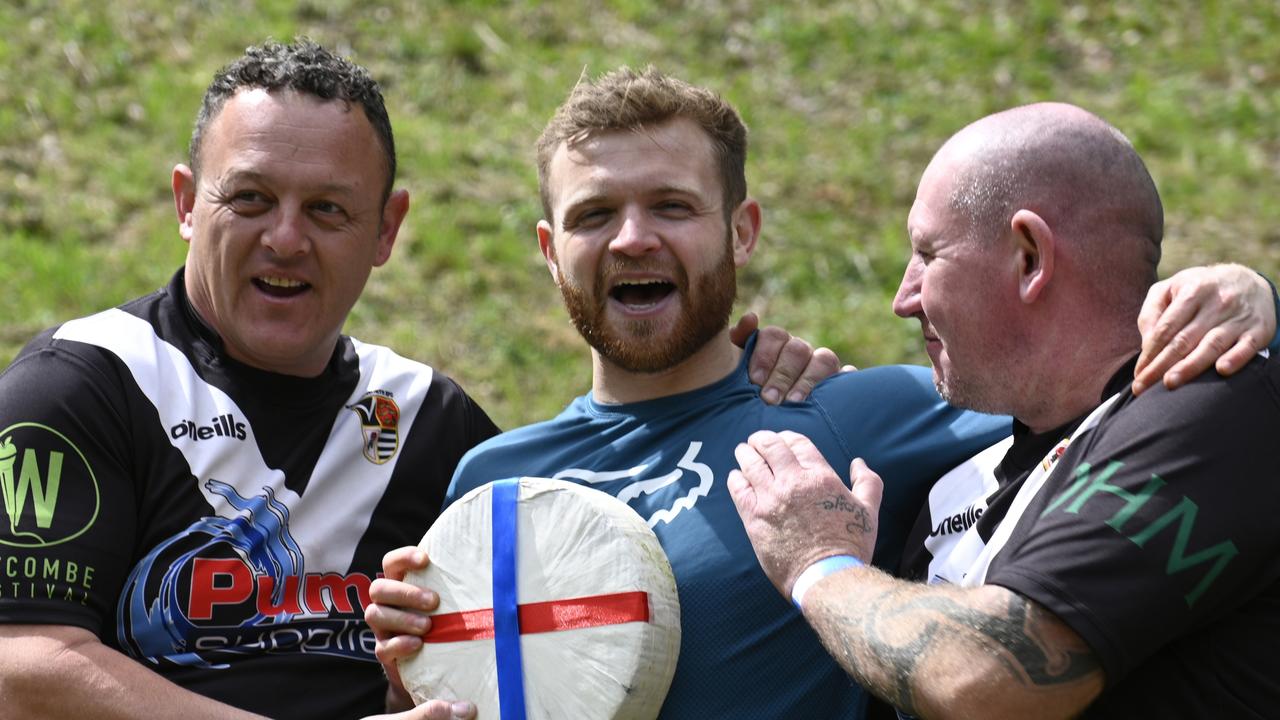Racers chase a three kilogram wheel of cheese down the hill
Woman knocked out at this year’s annual Cheese Rolling event in the UK and still wins race

READING LEVEL: GREEN
Hundreds of spectators* gathered to watch dozens of reckless* racers chase a three kilogram wheel of Double Gloucester* cheese down the near-vertical* hill, near Gloucester in south-west England.
The first racer to finish behind the fast-rolling cheese gets to keep it.
The cheese-rolling race has been held at Cooper’s Hill, about 160 kilometres west of London, since at least 1826, and the sport of cheese-rolling is believed to be much older.

The rough-and-tumble* event often comes with safety concerns. Few competitors manage to stay on their feet all the way down the 180 Metre hill, and this year several had to be helped, limping, from the course.
Canadian contestant Delaney Irving, 19, won the women’s race despite being briefly knocked unconscious*.
“I just remember hitting my head, and now I have the cheese,” said Ms Irving.

Matt Crolla, 28, from England, won the first of several men’s races. Asked how he had prepared, he told reporters: “I don’t think you can train for it, can you? It’s just being an idiot.”
GLOSSARY
- spectators: people who watch an event or performance
- reckless: acting without thinking about the possible dangers or consequences
- Double Gloucester cheese: a traditional, full fat, hard cheese
- near-vertical: almost straight up and down
- rough-and-tumble: an event or situation that is rough and disorganised
- knocked unconscious: knocked out and becoming unresponsive
EXTRA READING
The smells the world loves and hates
Make Harold’s healthy fruit pizza
Milk is cream of the crop for bones
QUICK QUIZ
- How is the winner determined in the cheese-rolling race?
- Where has the cheese-rolling race been held for many years?
- What are some safety concerns associated with the rough-and-tumble event?
- Despite being briefly knocked unconscious, who won the women’s race and what did she say about her victory?
- What is the prize for the first racer to finish behind the rolling cheese in the cheese-rolling race?
LISTEN TO THIS STORY
CLASSROOM ACTIVITIES
1. News: condensed
Identify the most important pieces of information in this article and write a condensed version of it using 50 words or less.
Draw a picture or diagram to support your condensed news story.
Time: allow 25 minutes to complete this activity
Curriculum Links: English; Science
2. Extension
Compare your condensed news story with a classmate. Did you both include the same information or are your stories quite different? Discuss your choices and then work together to create a final condensed version of the story that you both agree tells the important parts that a reader would need or want to know.
Time: allow 20 minutes to complete this activity
Curriculum Links: English
VCOP ACTIVITY
BAB it!
Show you have read and understood the article by writing three sentences using the connectives “because’’, “and”, and “but” (BAB).
Your sentences can share different facts or opinions, or the same ones but written about in different ways.
What can you come up with?
Remember to use your VCOP editing skills to read aloud, edit and up-level.

